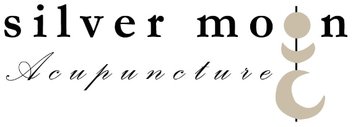Frequently Asked Questions
How Does Acupuncture Work?
How Does Acupuncture Work from a Western Perspective?
How many treatments will I need?
Are the needles clean?
Is acupuncture painful?
What should I expect from a session?
How Does Acupuncture Work from a Western Perspective?
How many treatments will I need?
Are the needles clean?
Is acupuncture painful?
What should I expect from a session?
How Does Acupuncture Work?
Traditionally, acupuncture is based on the ancient Chinese theories of the flow of Qi "chee" through channels knows as meridians which transverse the body similar, but not identical to, the nervous and circulatory systems. According to this theory, acupuncture regulates the flow of Qi by tonifying areas of deficiency and circulating qi in areas of excess or stagnation. Thus acupuncture regulates and restores the harmonious energetic balance of the body. Acupuncture and Chinese Medicine focus on the root of the condition in order to support healing. Together they promote an optimal environment for the body to heal itself.
Traditionally, acupuncture is based on the ancient Chinese theories of the flow of Qi "chee" through channels knows as meridians which transverse the body similar, but not identical to, the nervous and circulatory systems. According to this theory, acupuncture regulates the flow of Qi by tonifying areas of deficiency and circulating qi in areas of excess or stagnation. Thus acupuncture regulates and restores the harmonious energetic balance of the body. Acupuncture and Chinese Medicine focus on the root of the condition in order to support healing. Together they promote an optimal environment for the body to heal itself.
How Does Acupuncture Work from a Western Perspective?
Of course the Chinese medical theory as to why acupuncture works can seem foreign to westerners and sometimes be confusing to us. The following are five prevailing theories researched by the western medical community using scientific terminology. These are based on studies performed before and after acupuncture.
Of course the Chinese medical theory as to why acupuncture works can seem foreign to westerners and sometimes be confusing to us. The following are five prevailing theories researched by the western medical community using scientific terminology. These are based on studies performed before and after acupuncture.
|
The “Augmentation” Theory - Acupuncture raises levels of triglycerides, specific hormones, prostaglandins, white blood counts, gamma globulins, and overall antibody levels. This is why acupuncture can treat disorders related to immune function, benefiting in disease prevention and current conditions.
The “Endorphin” Theory – Acupuncture stimulates the secretion of endorphins. Endorphins are our body’s natural pain killers and are 1000 times stronger than morphine. This is why patients may often experience immediate pain reduction while on the treatment table. The “Neurotransmitter” Theory – Acupuncture can affect certain neurotransmitter levels (such as serotonin and noradrenaline). This is why acupuncture is so successful with depression and mood disorders. It is also why patients feel so calm and relaxed after a treatment. Low serotonin levels can also cause cravings for sugar which is why acupuncture can be helpful for weight-loss. The “Circulatory” Theory – This states that acupuncture has the effect of constricting or dilating blood vessels. This is caused by the body’s release of vasodilators (such as histamine) in response to acupuncture and would show how treatment can resolve edema, neuropathy, and injury recovery. The “Gate Control” Theory – Pain signals must pass through a number of high-traffic “gates” as they move from the area of injury upward through the spinal cord into the brain. These nerves can handle only a limited number of signals at one time. Acupuncture generates competing stimulus and effectively interrupts the neurotransmission of the pain signals from reaching the brain. This theory can explain how acupuncture is used as an anesthetic during surgery. |
How many treatments will I need?
The number of treatments depends on the individual and the severity of the condition. Some people will experience relief immediately after their first treatment and others may take several treatments. Generally speaking acute conditions that are shorter in duration may take 2-3 treatments to heal, where chronic conditions may take longer to treat the underlying cause.
The number of treatments depends on the individual and the severity of the condition. Some people will experience relief immediately after their first treatment and others may take several treatments. Generally speaking acute conditions that are shorter in duration may take 2-3 treatments to heal, where chronic conditions may take longer to treat the underlying cause.
Are the needles clean?
Yes, the needles are single-use, pre-sterilized, disposable needles.
Yes, the needles are single-use, pre-sterilized, disposable needles.
Is acupuncture painful?
In general, acupuncture is painless. Common sensations such as distention, heaviness, and tingling might be felt around the needle and along the meridians. Most people find acupuncture a pleasant and deeply relaxing experience.
In general, acupuncture is painless. Common sensations such as distention, heaviness, and tingling might be felt around the needle and along the meridians. Most people find acupuncture a pleasant and deeply relaxing experience.
What should I expect from a session?
The initial visit will begin with an in-depth assessment of the patient's condition followed by a treatment. Needles are usually retained 20-30 minutes, while the patient relaxes comfortably. Acupuncture sessions can take 1 1/2 to 2 hours for an initial consultation and 1 hour for follow up treatments. Patients are encouraged to eat a light meal before their appointment. Wearing comfortable loose clothing is also recommended but not required.
The initial visit will begin with an in-depth assessment of the patient's condition followed by a treatment. Needles are usually retained 20-30 minutes, while the patient relaxes comfortably. Acupuncture sessions can take 1 1/2 to 2 hours for an initial consultation and 1 hour for follow up treatments. Patients are encouraged to eat a light meal before their appointment. Wearing comfortable loose clothing is also recommended but not required.

